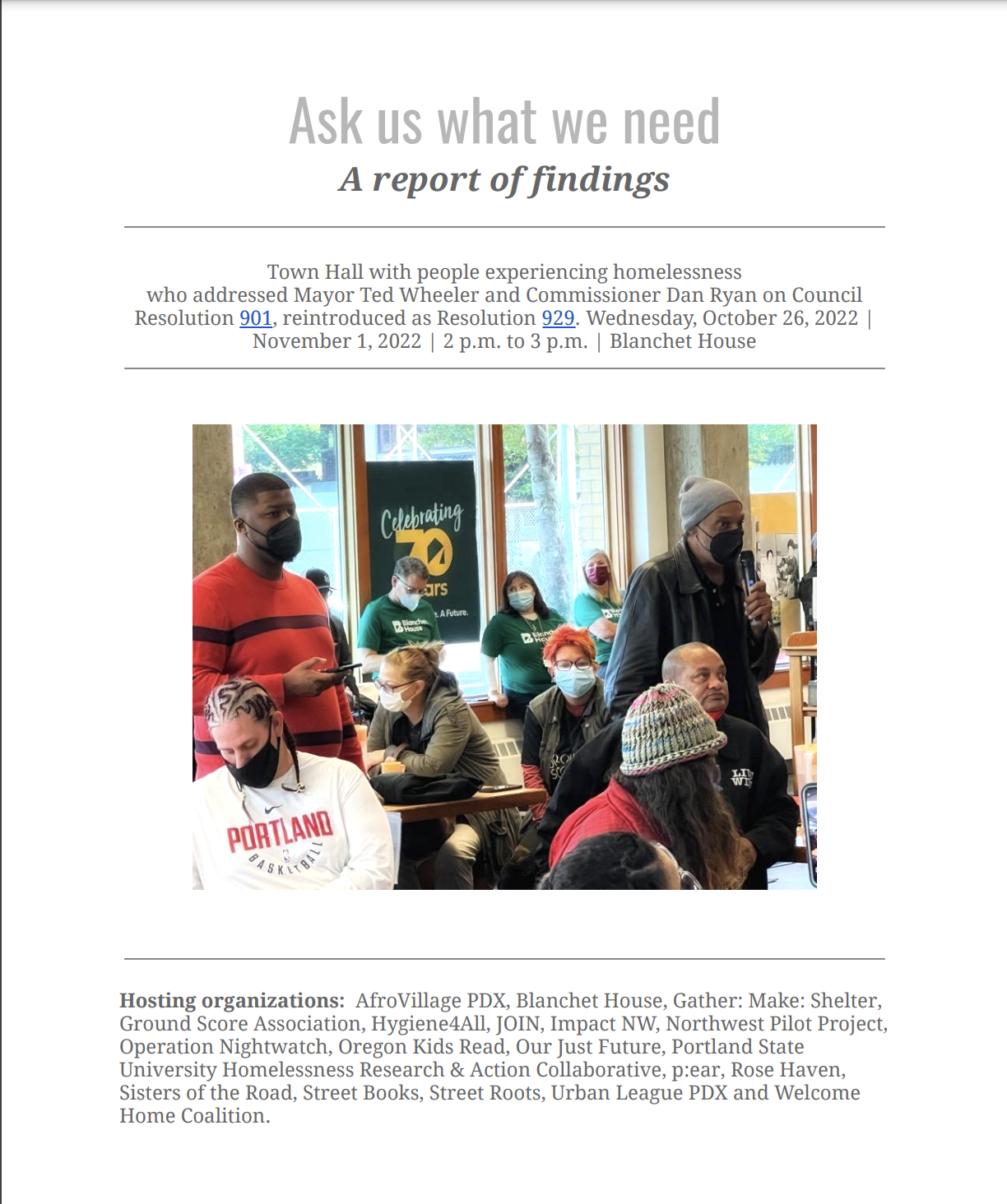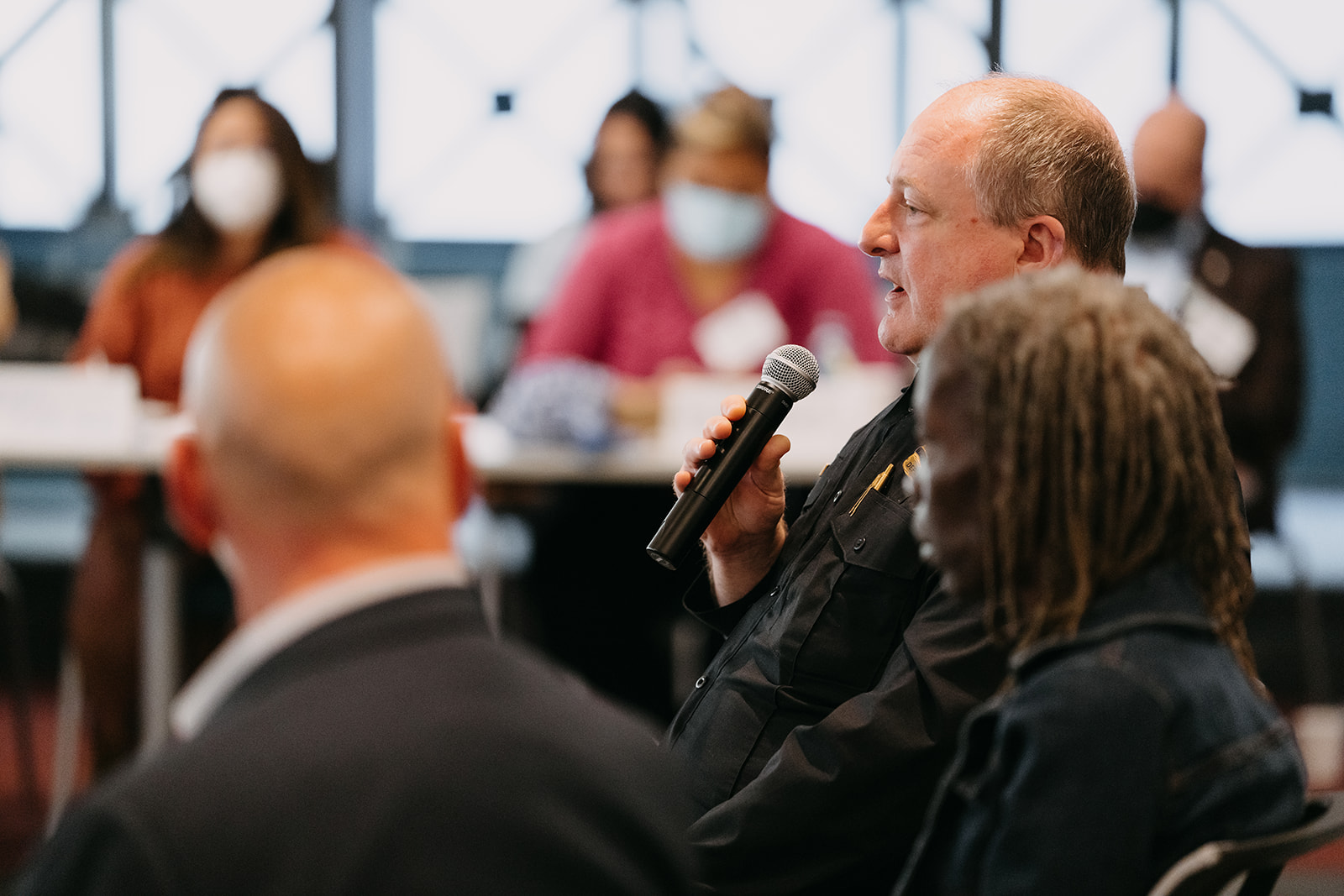Like a car wrenching into a U-turn on a slick and treacherous road, Portland City Council dangerously pivoted our city when it voted to ban unsanctioned encampments and erect city-sanctioned mass encampments.
This stands in strong contrast to constructive policies and could undo existing progress.
First, here’s what moving in the right direction:
The Multnomah County government, Metro government and Oregon State Legislature are moving to create quicker housing options so people can get off the streets and into stable housing.
As Nicole Hayden of The Oregonian reported last week, Move-in Multnomah — a program guaranteeing one year of rent for landlords — housed people within weeks and for far less than it would cost to set someone up in a city camp.
The Regional Long-Term Rent Assistance run by Metro means people can obtain housing with long-term stability. Too often, short assistance means the floor drops out, and people end up back on the streets. This assistance avoids that pitfall.
The first round of the state-funded and Oregon Community Foundation-administered Project Turnkey increased state-wide shelter capacity by 20%. The Oregon Community Foundation is well into administering the second round of the project.
If City Council was serious about helping people get off the streets, rather than competitive showmanship, it would lift up and support Multnomah County's efforts and the regional strategy by Metro. It would learn from Project Turnkey and purchase motels and other spaces the city can quickly convert into transitional housing.
Yes, God forbid, credit would have to be shared, but the city would actually help people.
Instead, it is committing to building large-scale encampments, which are less effective, more expensive and potentially dangerous.
If the city was serious about camps working, it would learn from the pre-existing and much smaller resident-governed villages.
In March, the Portland State University Homelessness Research and Action Collaborative released an extensive study, the Village Research and How-To Guide, showing what works.
During last week’s town hall — which Street Roots advocacy hosted with 18 other organizations — a number of people testified about better approaches to villages. These testimonies are included in “Ask us what we need,” a report on the town hall — in which people experiencing homelessness told Mayor Ted Wheeler and Commissioner Dan Ryan what they thought of the ban on unsanctioned camping and planned creation of mass encampments.
If it were serious, City Council would also engage in extensive outreach and engagement with impacted communities. Commissioner Jo Ann Hardesty's collaboration with Wheeler and community groups, including Street Roots, on months-long listening sessions and street surveys preceding the formation of Portland Street Response, is an example. Read “Believe our Stories and Listen,” the findings report composed of insights from people on the streets, and you’ll see a blueprint for the actual program that’s been carefully scaled up. Last month it responded to 824 calls, a 1773% increase in one year.
Portland Street Response serves as yet another important contrast to the camp ban. As Melissa Lewis of Reveal reports, people experiencing homelessness composed more than half of all arrests in Portland from 2017 to 2020, the most recent year studied. These arrests create legal entanglements which create barriers to housing and employment.
Portland Street Response was set up to reduce these legal entanglements, so the correct first responder comes out and not just the police.
I recently interviewed PPB Deputy Chief Mike Frome about Portland Street Response.
“You know, I keep my eye on what other agencies across the United States do,” Frome said. “And we're still unique in the city that we've had a PSR built up because it's outside the Police Bureau.”
Portland, by carving out an entirely new first responder system, is cutting edge.
Frome meets regularly with Hardesty to discuss Portland Street Response. His voice filled with pride as he talked about the program.
“I'm hopeful to be able to watch that and see where different jurisdictions suddenly say that, hey, they're copying Portland,” he said. “That's when it's going to be powerful.”
Portland, we are doing some really good work, developing new ways to get people into housing quickly and developing a first responder system that jurisdictions around North America look to as a model.
But this new move by the City Council is really an old move. Over and over, for the past quarter century, City Council brandished bans and ordinances only to be declared cruel and inhumane by the courts, which surely will happen again.
It’s just cynical political theater.
Last week, Street Roots advocacy joined up with the ACLU to question who is informing this new policy because it isn’t people on the streets. Hundreds of staff and volunteer hours went into setting up last week’s town hall in order to respond to the false urgency leveled by Wheeler and Ryan — all work that a City Council focused on equitable civic engagement should prioritize.
The town hall testimony, summed up in the report “Ask us what we need,” fell into these themes:
- Engage directly with constituents experiencing homelessness, including those who are successfully organizing solutions
- Mass camps are not the answer and are, in fact, terrifying
- Criminalization isn’t only unfair, it’s counterproductive
- Homelessness stresses mental health
- Street outreach is important
- These policies infantilize and dehumanize people who then lose trust
- There are reasons some people avoid shelters
- Lack of affordable housing is a cause of homelessness
- Eviction is a cause of homelessness
- Barriers include lack of ID, health
- Support rent assistance and other programs that can get people into housing and help them retain it
- Support services are important
Move-in Multnomah, the Regional Long Term Rent Assistance, Project Turkey and Portland Street Response all are going in the direction summed up by the town hall.
Banning unsanctioned camping and building compulsory mass camps? No. This is political theater that, seen through, will inflict harm.
Street Roots is an award-winning weekly investigative publication covering economic, environmental and social inequity. The newspaper is sold in Portland, Oregon, by people experiencing homelessness and/or extreme poverty as means of earning an income with dignity. Street Roots newspaper operates independently of Street Roots advocacy and is a part of the Street Roots organization. Learn more about Street Roots. Support your community newspaper by making a one-time or recurring gift today.
© 2022 Street Roots. All rights reserved. | To request permission to reuse content, email editor@streetroots.org or call 503-228-5657, ext. 404



